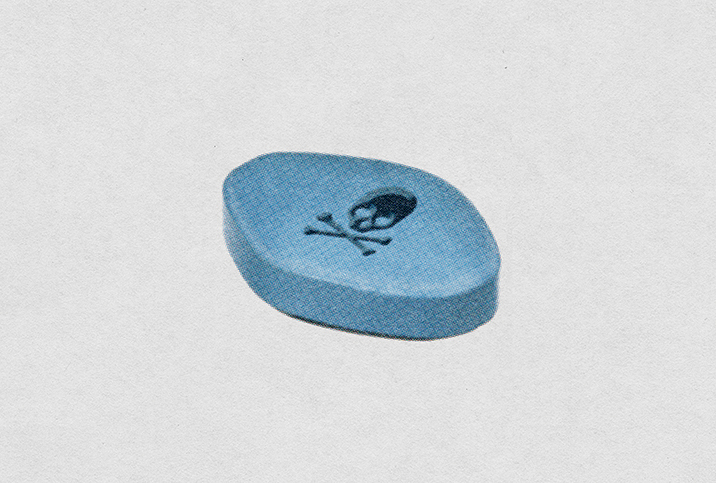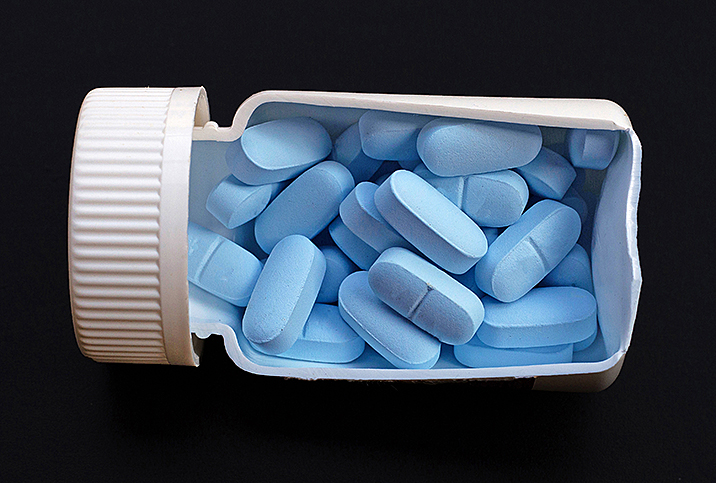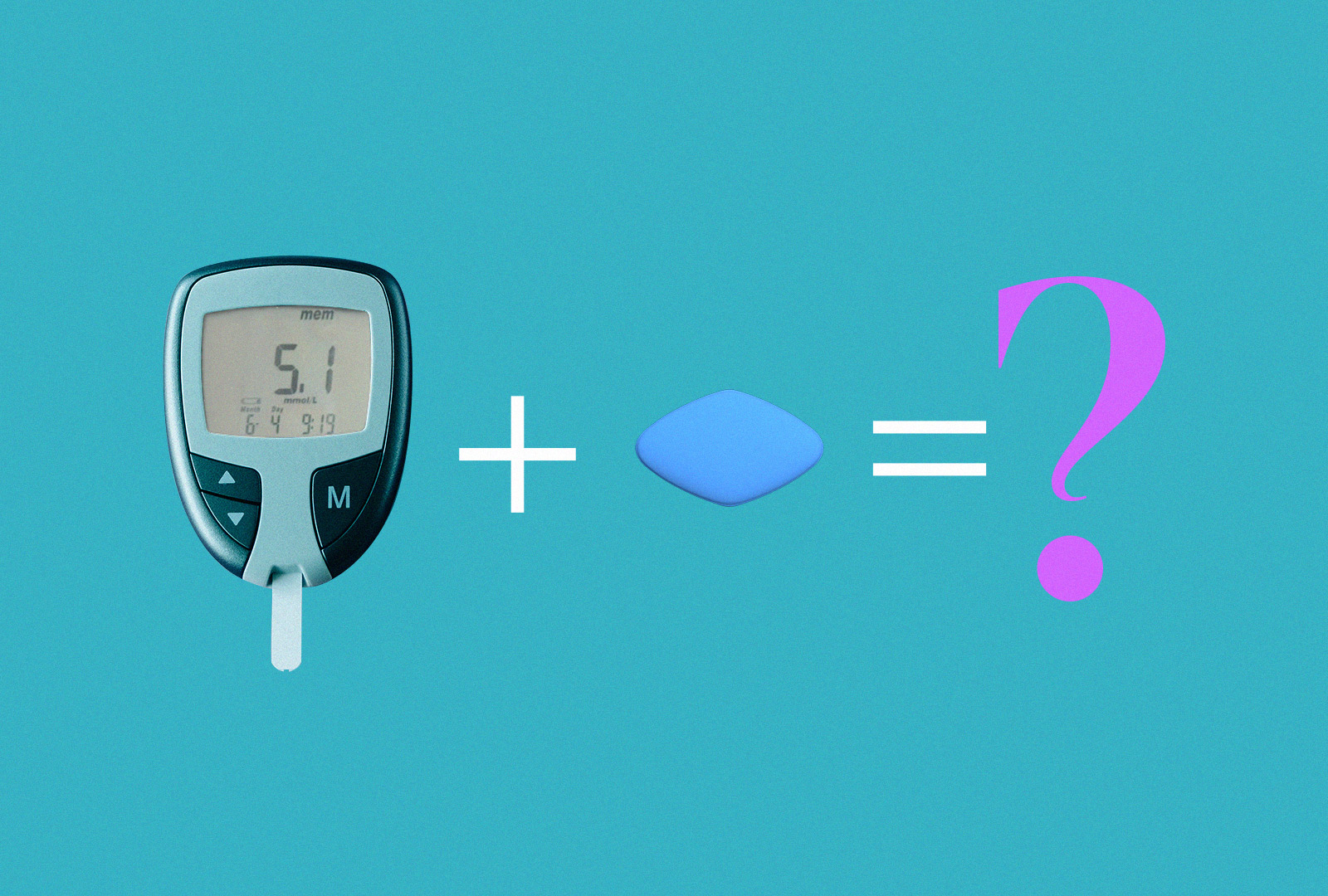Doctor's Note: When Erectile Dysfunction Medication Goes Wrong

It was just another busy shift in the ER when a young man in his early 20s checked into triage. The nurse took his vital signs and then asked, "What brings you to the emergency department today?" The patient was clearly nervous and reluctantly responded that he had a "personal issue."
The nurse asked no further questions, and the patient was transferred to a room in the ER. Upon checking the tracking board, I signed up to see the patient with a "personal issue" and walked into the room to introduce myself. For purposes of anonymity, let's call the patient James.
"Good evening, James. My name is Dr. Dunay. What brings you in today?"
The patient seemed relieved to have a male physician and explained that he'd had an erection for the past six hours. During the information-gathering process, James said he had a new girlfriend who he really wanted to impress in the bedroom, and some of his friends had encouraged him to try a drug to enhance his performance. His buddy gave him a sildenafil pill, which he reluctantly took while his judgment was clouded by the thought of a hot evening with this new woman to whom he was very attracted.
A four-hour erection is not a bragging matter
While a six-hour erection may sound like a good time, priapism—a persistent erection that lasts four hours or more when blood is unable to drain from the penis—is a medical emergency and can cause lasting damage to the penis. Everyone has likely seen the ads for Viagra or Cialis and noticed the disclaimer: "If you have an erection lasting more than four hours, please seek medical attention immediately."
This warning should not be taken lightly, because the longer a penis is erect without being able to detumesce, or become soft, the higher the risk of damage to the penile tissue and potential impotence.
How ED drugs work
Drugs for erectile dysfunction (ED) were a medical breakthrough and arrived with much fanfare in March 1998, after the Food and Drug Administration approved Pfizer's Viagra (sildenafil) pill. Since then, vardenafil, tadalafil and avanafil have also been released as ED drugs.
They all work similarly but have different properties with regard to the onset of action, the duration of their effect and their side effects. These drugs all block an enzyme called phosphodiesterase type 5 (PDE5), which lives in the walls of blood vessels, including those of the penis. Blocking this enzyme causes the muscles of the blood vessels to relax, which in turn allows blood to engorge the penis.
In most cases, the erection goes down after orgasm. On rare occasions, however, the penis may remain erect and prompt a visit to the ER. This is why these drugs should only be used after you have been evaluated by a medical professional and they have considered your individual risk of being on medications to treat erectile dysfunction.
Who shouldn't use ED medications?
PDE5 inhibitors, such as sildenafil, are primarily used to treat ED but can be used in patients with pulmonary hypertension. Much consideration should be given to treating patients for ED who also have advanced cardiovascular disease, especially patients who have had a stroke or take nitrates, such as nitroglycerin, for chest pain.
People who inhale poppers, a drug similar to amyl nitrite, during sex—especially men who have sex with men (MSM)—should not use ED drugs because they could possibly cause a dangerous and profound drop in blood pressure.
Additionally, ED drugs are often used at "chem parties," particularly among MSM, in conjunction with illicit drugs such as cocaine and methamphetamine, to prolong sex. Not only can this contribute to high rates of sexually transmitted infections (STIs) if protection isn't used, but it can lead to chemical dependency and potentially a heart attack or stroke.
Unfortunately, whenever a consumer product is popular—yes, sorry to say, including drugs—counterfeit items are bound to flood the market. In fact, sildenafil is one of the most counterfeited drugs in the world. Counterfeit drugs are not regulated and are frequently mixed with potentially dangerous chemicals.
It is important to seek a prescription from a licensed medical professional and have your prescription filled at a reputable pharmacy.
Priapism treatment in the ER
So, what happened to James? Well, in cases of priapism, the goal is to get the blood out of the penis as quickly as possible. The first-line treatment typically involves injecting a medication called phenylephrine, which constricts the blood vessels of the penis, followed by inserting a large needle in the corpora cavernosa—the two chambers that fill with blood during an erection—to drain the blood. If this procedure is unsuccessful, surgery may be necessary.
Fortunately for James, he was treated, his penis recovered and, hopefully, he went on to have a safe and healthy sex life.
Overall, ED drugs are safe when used correctly and under the care of a licensed medical provider. Mild side effects are more common and include headaches, dizziness and feeling flushed. Complications can arise when used in conjunction with other substances or when more than the required dose is taken.
Stephen Dunay currently practices emergency medicine at Hialeah Hospital in Hialeah, Florida, and is a clinical assistant professor at Florida International University's Herbert Wertheim College of Medicine. He earned his M.D. from Rutgers Biomedical and Health Sciences/New Jersey Medical School. He was an emergency physician with the U.S. Army for three years.


















